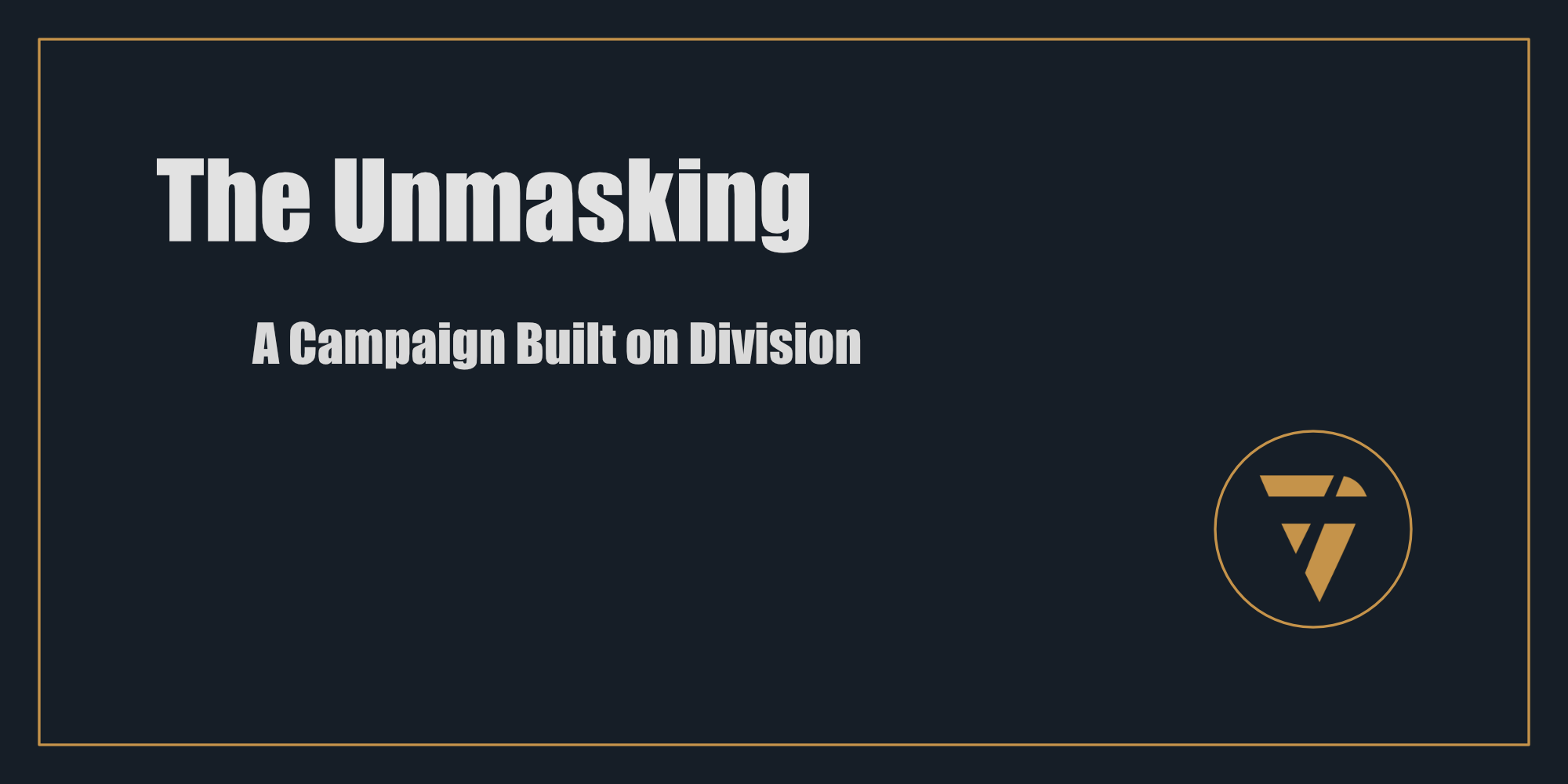The Unmasking
A Campaign Built on Division

What does it mean when a leader leans into chaos?
Pierre Poilievre’s recent interview with Jordan Peterson wasn’t just a conversation—it was a manifesto. It was a calculated declaration of alignment, not with Canada’s majority, but with a narrow, polarized subset of disaffected voters. The intent wasn’t subtle: galvanize his base, burn bridges with progressives, and claim the mantle of Canada’s culture warrior.
But here’s the real question: what does this strategy reveal about the man who wants to own Canada?
The Mask of Intellectualism
At first glance, the interview seemed to offer intellectual substance—a meeting of two critical minds debating the future of Canada. But peel back the layers, and what’s left is a hollow echo chamber. Jordan Peterson lobbed predictable softballs, and Poilievre responded with a carefully rehearsed critique of Liberal failures: inflation, crime, energy policy.
This wasn’t a debate of ideas; it was a sermon for the disillusioned. Peterson’s audience provided a ready-made platform for Poilievre to paint a picture of a broken Canada in need of saving, where entrenched elites and government overreach have left ordinary citizens helpless. It wasn’t leadership—it was opportunism disguised as conviction.
The Calculated Polarization
Let’s not pretend the anti-abortion ad featured in the episode was an accident. It was a carefully placed dog whistle, a signal to socially conservative voters that Poilievre is willing to wade into controversial territory.
This is politics by subtraction. By aligning himself with Peterson—a figure known for his divisive rhetoric—Poilievre is betting that Canada’s cultural divide is deep enough to push him into power. He’s gambling that energizing the fringes of the right is more effective than courting the moderate middle.
But here’s the problem: Canada isn’t the United States. Our electorate punishes extremism. Or it used to. By embracing this brand of divisive politics, Poilievre risks alienating the very moderates he’ll need to govern if he wins. We are told there are no moderates. Ask the follow up.
A Strategy Without Substance
Let’s be clear: the issues Poilievre raised are real. Crime, inflation, and energy policy are pressing concerns for Canadians. But addressing these issues requires solutions, not just outrage.
The interview offered no such solutions. Instead, it relied on broad critiques and vague promises, wrapped in a narrative of victimhood and blame. Poilievre portrayed himself as the saviour of a country in crisis, but offered little in the way of actionable policy to back up his claims.
This is the danger of his campaign: it’s built on dissatisfaction, not direction. Canadians deserve more than finger-pointing and cultural battles. They deserve leadership that unites, not divides.
The Danger of the Culture War
Poilievre’s strategy reveals something troubling about his vision for Canada. By choosing polarization over pragmatism, he’s signaling that he sees division as a political tool, not a problem to solve.
This isn’t leadership. It’s mimicry of American-style politics, where winning means out-shouting your opponents, not out-thinking them. It’s a dangerous path, one that threatens to erode the collaborative, consensus-driven politics that have long defined Canada.
What Canada Needs Instead
Canadians are tired of performative outrage and empty promises. What they want—what they deserve—is a leader who can address the country’s challenges with clarity, compassion, and competence.
Pierre Poilievre’s interview with Jordan Peterson was none of those things. It was a masterclass in division, a campaign ad dressed up as intellectual discourse.
What kind of leadership do you think Canada needs? One that leans into division or one that seeks to build bridges?
Share your thoughts, and if this resonates with you, subscribe for more insights into the intersection of politics, culture, and leadership.
Subscribe for the next deep dive into how leadership shapes the future of our country—and the leaders who rise to the occasion.
This Substack is reader-supported. To receive new posts and support my work, consider becoming a free or paid subscriber.
This is what I’m working on. Tell me what you think, I enjoy the conversation! Subscribe and follow the work in real time.
Thanks!
B
Poilievre's interview with Peterson wasn’t a conversation—it was a rallying cry for division. Campaigns built on outrage and cultural battles might win headlines, but they do not unite a country. Canada deserves better.
PS -





